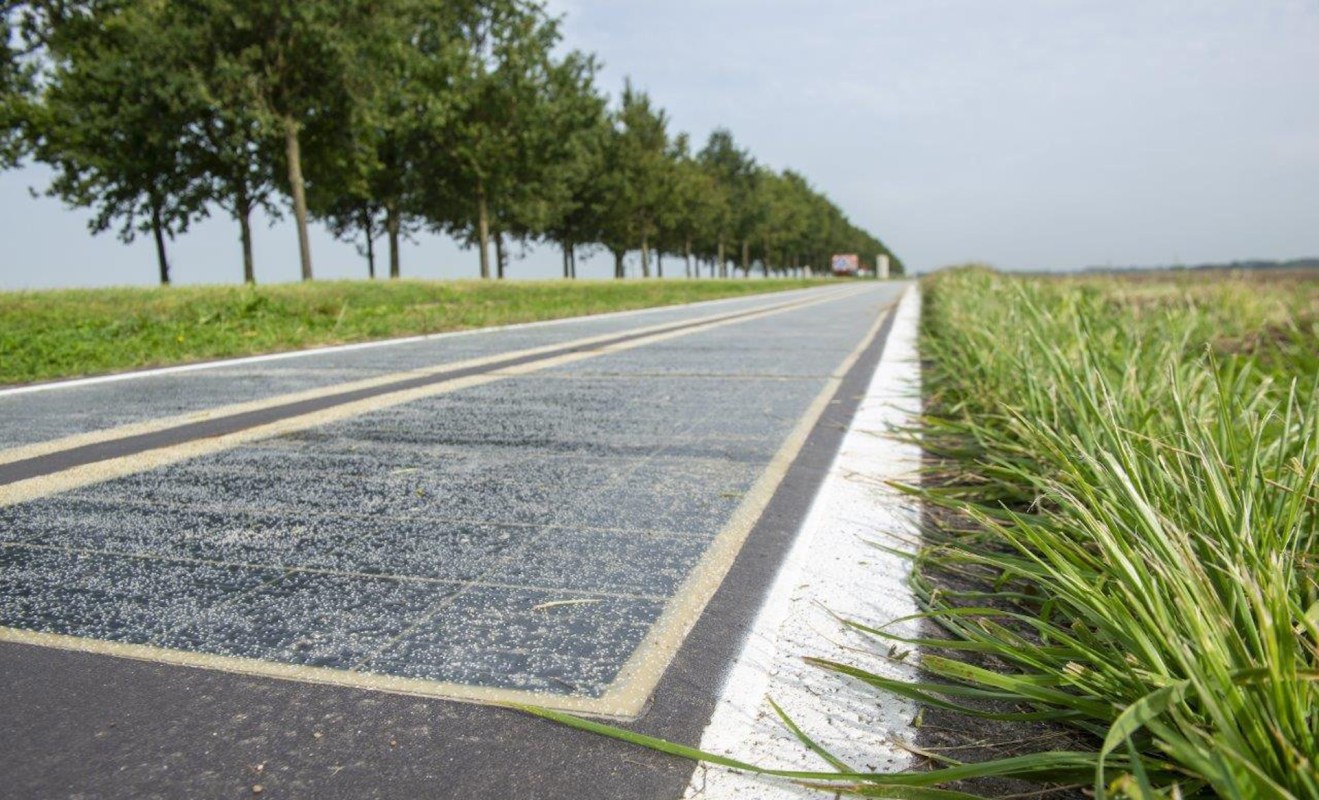Two new "solar cycle paths" have been installed in the Netherlands, allowing cyclists to ride their bikes over working solar arrays that will harvest clean, renewable energy from the sun to power the Dutch grid, as reported by Electrek.
The project is the work of Colas Group company Wattway and Dutch construction company BAM Royal Group, and each path will feature over 10,000 square feet of solar surface, generating 160 MWh/year of renewable energy.
Wattway, which bills itself as the world's first solar road surfacing company, has been in existence since 2015, and it has run around 40 trial roads in multiple countries. These have not always gone smoothly, however.
In 2019, the company's "longest solar road in the world" in France was declared a failure after it became heavily damaged by cars driving on it, per Business Insider. The road also failed to hit energy targets, as it was covered in leaves that prevented sunlight from getting through.
Wattway has not given up, though, and has continued to refine its technology. It will reportedly maintain and monitor the Dutch project for five years.
Several other companies are also working on similar products, such as Solar Roadways, while others are working on solar canopies that can be installed over roads instead of on the roads themselves.
Find the best HVAC solution to heat and cool your home more efficiently Mitsubishi Electric’s efficient heating and cooling HVAC solutions can help you stay comfortable no matter the weather or region. You can even regulate temperatures in each room with individually controlled all-electric heat pump systems. With an energy-efficient, all-climate system from Mitsubishi, you can reduce the amount of energy needed to heat and cool your home, receive up to $2,000 in tax credits, and get peace of mind knowing you’re choosing rigorously tested, high-quality products. |
Electrek called the idea "really smart," writing that solar roads are "a clever use of existing space, like putting solar on warehouse rooftops."
But the concept sparked intense debate in the Electrek comments section, with many commenters pointing out that roads are not like rooftops, in that they are much more susceptible to damage.
"Would it make more sense to put conventional solar panels OVER the bike paths?" wrote one commenter.
"Just seems like they're taking unnecessary damage over time by not being over a path. I'm not mad at it, just seems like it could be used for longer with less resources and maintenance almost anywhere else," wrote another.
TCD Picks » Upway Spotlight
💡Upway makes it easy to find discounts of up to 60% on premium e-bike brands
Join our free newsletter for weekly updates on the coolest innovations improving our lives and saving our planet.














